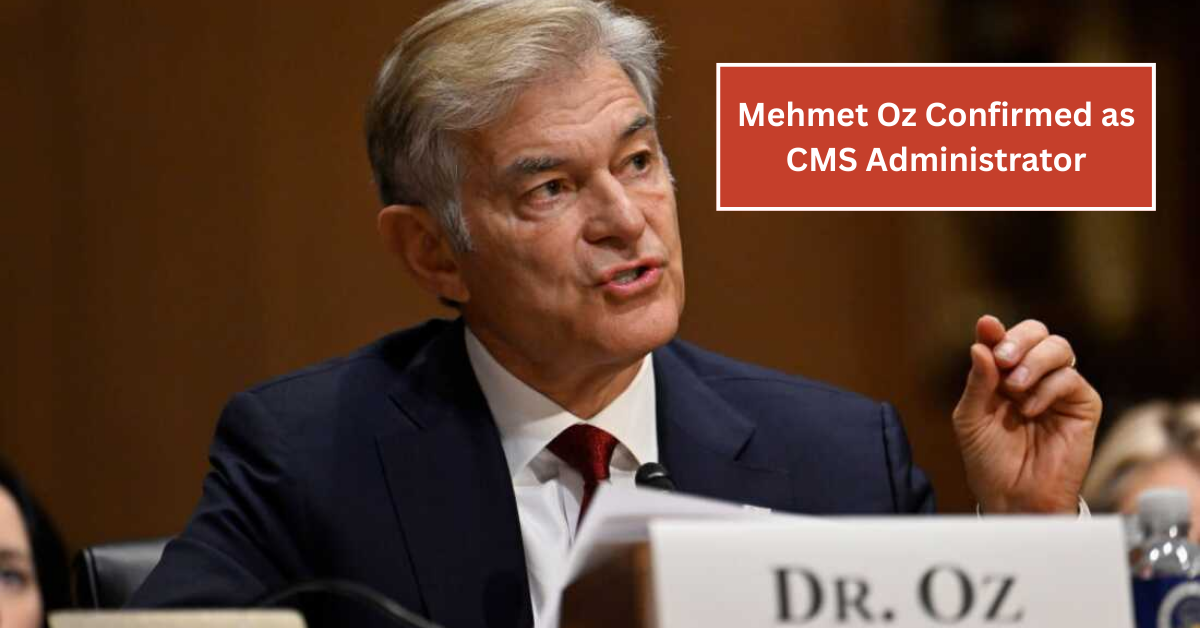The recent confirmation of Mehmet Oz as the Administrator of the Centers for Medicare & Medicaid Services (CMS) marks a significant shift in the leadership of one of the most influential healthcare agencies in the United States. Known primarily for his television personality and medical background, Oz brings a unique perspective to the helm of CMS amid ongoing discussions about the future of Medicare and healthcare reform. His appointment has generated considerable discussion about the potential direction Medicare policy might take under his guidance.
With Medicare serving millions of Americans and consuming a substantial portion of the federal budget, any change at the leadership level of CMS carries considerable implications for beneficiaries and healthcare providers alike. Understanding Mehmet Oz’s background, priorities, and possible impact on Medicare policy will help stakeholders anticipate changes and adaptations in the healthcare landscape over the coming years.
Background and Qualifications of Mehmet Oz
Mehmet Oz holds a rare combination of medical expertise and public recognition, having made a name for himself through medical practice, academic contributions, and media presence. A cardiothoracic surgeon by training, Oz graduated from notable medical institutions and has published extensively in the medical field. His rise to public prominence came through his television show, where he became a familiar voice in health education to millions of viewers.
Prior to his appointment as CMS Administrator, Oz’s experience blended patient care with public health messaging, which is an intriguing mix for a role overseeing critical federal health programs. While some experts debate whether his media background equips him fully for federal policymaking, Oz’s medical credentials and communication skills are expected to aid in shaping public understanding and engagement with Medicare policies.
Role and Responsibilities of the CMS Administrator
The CMS Administrator oversees the agency responsible for executing Medicare, Medicaid, and the Children’s Health Insurance Program (CHIP), which collectively cover nearly a third of the U.S. population. In addition to managing these massive public health programs, the Administrator influences policy development, regulatory enforcement, and healthcare innovation initiatives.
Critical functions include budget oversight, contracting with private insurers, and ensuring the quality and accessibility of services for beneficiaries. The Administrator also plays a prominent role in advising the Department of Health and Human Services and the White House on healthcare policy priorities, making the position a hub for strategic healthcare decisions in the federal government.
Medicare Overview and Its Importance in the U.S. Healthcare System
Medicare is a federal health insurance program primarily serving Americans aged 65 and older, along with younger people with certain disabilities. It consists of several parts that cover hospital care, medical services, and prescription drugs. Medicare is vital not only because it provides coverage for millions of seniors but also because it sets standards and payment models influencing the wider healthcare market.
The program’s sustainability and effectiveness are ongoing concerns due to demographic shifts, rising healthcare costs, and technological changes. Policymakers focus on balancing quality care with cost containment to ensure Medicare’s long-term viability for future generations.
Key Policy Areas Mehmet Oz Is Expected to Influence
Given his appointment, several Medicare-related policy areas are expected to see attention and possible reform initiatives under Oz’s administration. These include improving healthcare access and equity for underserved communities, enhancing telehealth services, and promoting innovative payment models designed to improve care efficiency. Oz has previously emphasized preventive care, which might lead to expanded coverage of wellness programs within Medicare.
Additionally, there is speculation around Aust’s stance on drug pricing reforms and value-based care, two hot-button topics in healthcare policy circles. His appointment could either accelerate current initiatives or introduce new strategies aimed at balancing cost with patient outcomes.
Potential Changes to Medicare Coverage and Benefits
Under Mehmet Oz’s leadership, Medicare beneficiaries might see shifts in coverage policies, particularly concerning preventive services and chronic disease management. Emphasis on health education and prevention could result in expanded benefits aimed at reducing the incidence of costly hospitalizations and improving overall public health.
Moreover, Oz might advocate for increasing the use of innovative technology in care delivery, including remote patient monitoring and digital health solutions, to enhance service delivery and beneficiary engagement. These changes would align with broader federal goals to modernize healthcare and make it more patient-centered.
Impact on Healthcare Providers and Insurers
Changes in CMS policies can significantly affect healthcare providers and insurers participating in Medicare programs. Providers might face updated reporting requirements, payment models, and care coordination incentives aligned with Oz’s vision of value-based care. Insurers administering Medicare Advantage plans could encounter new regulatory demands aimed at improving beneficiary outcomes.
These potential shifts highlight the importance of adaptability among stakeholders as they navigate evolving CMS guidelines. Enhanced collaboration between providers, insurers, and CMS is likely necessary to successfully implement policy adjustments and maintain high standards of care.
Prospects for Medicare Cost Management and Fraud Prevention
Medicare cost control and fraud prevention remain critical challenges for CMS. Mehmet Oz’s administration will likely continue to strengthen measures designed to curb waste, fraud, and abuse within the system. This could include investing in advanced data analytics and artificial intelligence tools to detect anomalies and ensure that Medicare funds are used appropriately.
Effective cost management is essential for preserving Medicare’s financial health. Innovations in monitoring and enforcement, coupled with policy reforms, will be central to addressing the rapid growth in healthcare spending.
Public and Political Reactions to the Appointment
The confirmation of Mehmet Oz has evoked mixed reactions across the political spectrum and public stakeholders. Supporters highlight his medical expertise and ability to communicate complex health issues effectively to the public. Critics express concerns regarding his relative inexperience in healthcare policymaking and the need for evidence-based decision-making at CMS.
The appointment also underscores the politicization of healthcare agencies, influencing debates about the direction of public health programs and regulatory practices. Public engagement and transparency will be key factors in shaping confidence in Oz’s leadership of CMS.
Looking Ahead: Opportunities and Challenges for CMS under Mehmet Oz
Mehmet Oz’s tenure as CMS Administrator presents opportunities to innovate and refocus Medicare policies on preventive care and health education. His fresh outlook might introduce novel approaches to longstanding issues such as healthcare disparities and beneficiary engagement. However, challenges remain, including managing escalating costs, adapting to evolving healthcare technologies, and balancing diverse stakeholder interests.
Success in this role will depend on Oz’s ability to navigate complex regulatory environments, collaborate with healthcare leaders, and build consensus around a vision for sustainable and equitable Medicare services. The coming years will reveal how his leadership shapes the future of one of America’s cornerstone health programs.
Summary Table: Overview of Mehmet Oz’s Impact on Medicare Policy
| Policy Area | Expected Focus | Potential Impact |
|---|---|---|
| Preventive Care | Expansion of wellness programs and screenings | Reduce hospital visits, improve health outcomes |
| Telehealth Services | Broader coverage and technology integration | Increase access, especially in rural/underserved areas |
| Cost Management | Fraud prevention and value-based payment models | Control spending, improve care quality |
| Health Equity | Targeted programs to reduce disparities | More inclusive access and outcomes |
| Provider Relations | Updated reporting and incentives | Enhance care coordination and efficiency |
Final Thoughts on Mehmet Oz’s Confirmed Role and Medicare’s Future
Mehmet Oz’s confirmation as CMS Administrator is a pivotal moment for Medicare policy. His blend of medical knowledge and public presence offers a fresh perspective that might reshape how Medicare serves millions of Americans. As the healthcare sector watches closely, the balance between innovation and regulation will determine the effectiveness of CMS in addressing today’s health challenges.
For younger generations, understanding these policy shifts is crucial as Medicare evolves to meet future demographic and medical needs. Oz’s leadership may well signal new directions that prioritize prevention, technology, and equity, ensuring Medicare remains a cornerstone of America’s healthcare system for years to come.




